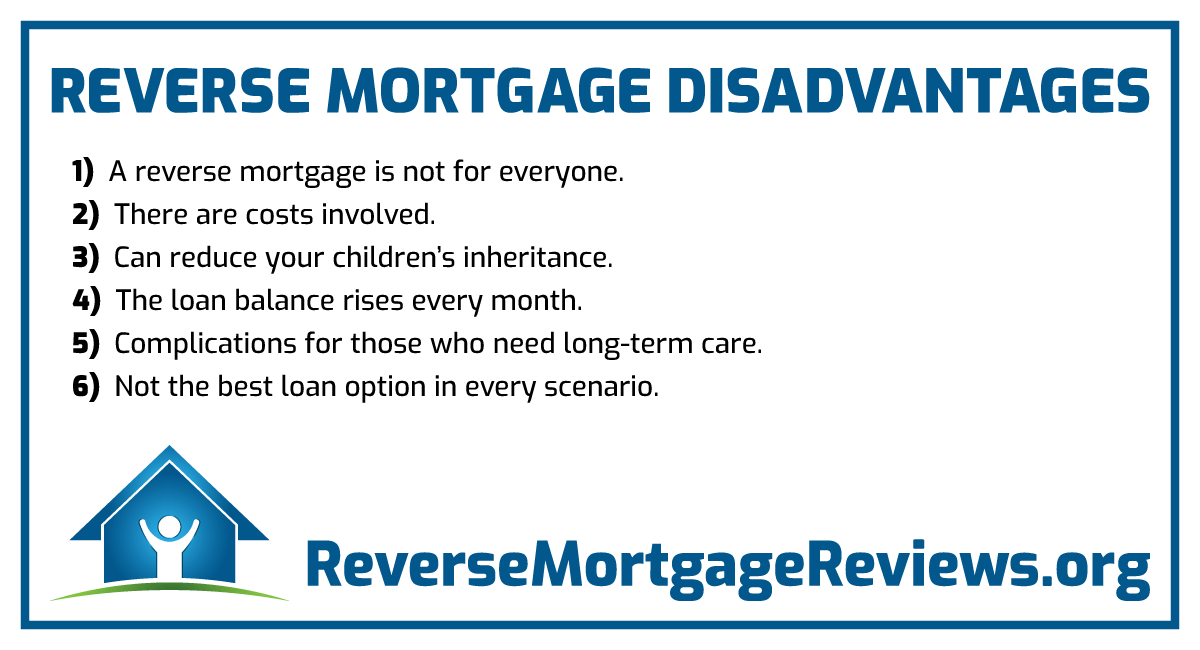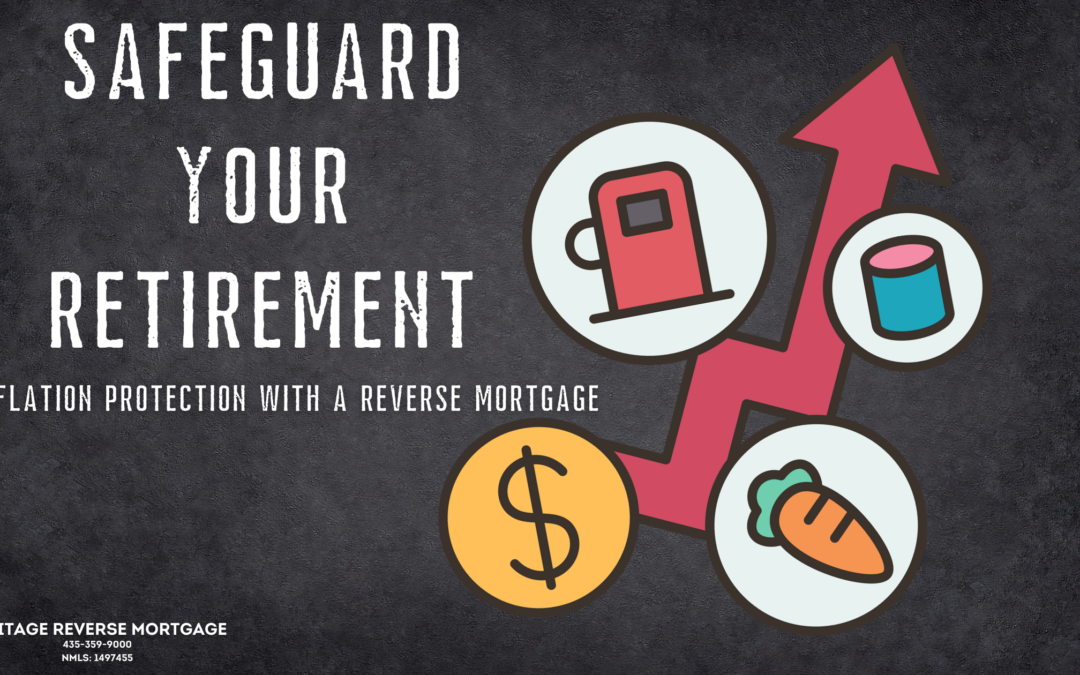How to Purchase Reverse Mortgage for a Secure Retirement Income
Unlock Financial Liberty: Your Guide to Investing In a Reverse Home Mortgage
Understanding the details of reverse home mortgages is vital for property owners aged 62 and older seeking economic flexibility. This special monetary tool makes it possible for elders to leverage their home equity, transforming it right into available money for various needs, from medical care to way of life improvements. Navigating the qualification costs, advantages, and requirements can be complex. As you consider this option, it is critical to understand not just exactly how it works yet additionally the implications it may carry your financial future. What are the vital elements you should weigh prior to making such an impactful decision?
What Is a Reverse Mortgage?

The basic appeal of a reverse mortgage exists in its prospective to boost economic adaptability throughout retirement. Home owners can use the funds for various objectives, including medical costs, home enhancements, or daily living costs, hence offering a safety web during a critical point of life.
It is important to recognize that while a reverse home loan permits enhanced cash money circulation, it additionally lowers the equity in the home in time. As rate of interest builds up on the outstanding loan equilibrium, it is vital for prospective customers to meticulously consider their lasting financial strategies. Consulting with a monetary advisor or a reverse mortgage expert can supply beneficial insights into whether this choice straightens with a person's economic goals and situations.
Eligibility Needs
Recognizing the eligibility demands for a reverse home mortgage is essential for home owners considering this monetary alternative. To qualify, applicants need to go to the very least 62 years of ages, as this age standard permits elders to access home equity without regular monthly mortgage settlements. Furthermore, the property owner should inhabit the residence as their main home, which can include single-family homes, specific condos, and produced homes meeting particular guidelines.
Equity in the home is one more vital requirement; property owners usually require to have a considerable quantity of equity, which can be figured out through an appraisal. The amount of equity readily available will directly influence the reverse home loan amount. Candidates need to demonstrate the capability to preserve the home, consisting of covering building taxes, home owners insurance, and upkeep expenses, making certain the home stays in excellent problem.
In addition, possible consumers need to undergo a monetary assessment to examine their income, credit history, and overall economic circumstance. This evaluation aids lending institutions establish the candidate's capacity to satisfy recurring responsibilities connected to the residential or commercial property. Fulfilling these requirements is critical for protecting a reverse home loan and making sure a smooth financial change.
Advantages of Reverse Mortgages
Countless benefits make reverse mortgages an enticing choice for seniors aiming to enhance their economic versatility. purchase reverse mortgage. One of the key advantages is the ability to convert home equity into cash money without the demand for regular monthly mortgage payments. This feature enables senior citizens to accessibility funds for numerous needs, such as clinical expenses, home improvements, or daily living prices, thereby minimizing financial anxiety
Additionally, reverse home mortgages offer a safeguard; elders can continue to stay in their homes for as long as they meet the loan needs, promoting stability during retired life. visit this page The profits from a reverse home loan can also be used to delay Social Security benefits, possibly leading to higher payouts later.
Additionally, reverse mortgages are non-recourse financings, implying that borrowers will never owe even more than the home's worth at the time of sale, shielding them and their successors from economic obligation. The funds gotten from a reverse home loan are generally tax-free, including another layer of monetary relief. In general, these benefits setting reverse mortgages as a useful option for elders looking for to enhance their monetary scenario while preserving their treasured home environment.

Costs and expenses Involved
When thinking about a reverse home mortgage, it's vital to recognize the numerous costs and charges that can affect the overall monetary photo. Recognizing these expenses is vital for making a notified decision concerning whether this economic product is best for you.
Among the primary prices connected with a reverse mortgage is the source charge, which can differ by loan provider yet normally ranges from 0.5% to 2% of the home's appraised worth. Furthermore, homeowners ought to prepare for closing costs, which might include title insurance policy, assessment charges, and credit score record charges, typically totaling up to numerous thousand bucks.
One more substantial expense is mortgage insurance costs (MIP), which safeguard the lender against losses. This cost is generally 2% of the home's value at closing, with a recurring yearly costs of 0.5% of the continuing to be car loan equilibrium.
Last but not least, it is very important to take into consideration continuous prices, such as real estate tax, property owner's insurance coverage, and maintenance, as the visit their website consumer continues to be in charge of these expenditures. By thoroughly examining these fees and prices, property owners can better analyze the monetary effects of seeking a reverse mortgage.
Steps to Start
Starting with a reverse home mortgage entails a number of vital actions that can aid streamline the process and guarantee you make educated choices. Evaluate your economic situation and figure out if a reverse mortgage straightens with your long-term objectives. This includes examining your home equity, current financial obligations, and the requirement for additional earnings.
Following, study numerous loan providers and their offerings. Seek trusted establishments with positive evaluations, clear cost structures, and competitive rate of interest prices. It's necessary to compare problems and terms to locate the most effective suitable for your needs.
After selecting a lender, you'll need to complete a thorough application process, which commonly calls for paperwork of revenue, possessions, and residential or commercial property information. Participate in a counseling session with a HUD-approved therapist, that will offer understandings into the effects and obligations of a reverse mortgage.
Verdict
To conclude, reverse home loans offer a practical option for seniors looking for to enhance their monetary security during retirement. By transforming home equity right into obtainable funds, property owners aged 62 and older can resolve various monetary needs without the pressure of monthly payments. Recognizing the ins and outs of eligibility, advantages, and linked expenses is important for making educated decisions. Mindful factor to consider and preparation can bring about improved lifestyle, making certain that retired life years are both protected and fulfilling.
Understanding home the complexities of reverse mortgages is necessary for homeowners aged 62 and older seeking monetary flexibility.A reverse home loan is a monetary item created primarily for homeowners aged 62 and older, allowing them to convert a section of their home equity into money - purchase reverse mortgage. Consulting with a monetary consultant or a reverse home mortgage specialist can supply beneficial insights into whether this option lines up with a person's financial goals and situations
Additionally, reverse mortgages are non-recourse fundings, implying that customers will never owe more than the home's worth at the time of sale, protecting them and their heirs from economic liability. On the whole, these advantages setting reverse home mortgages as a functional remedy for elders looking for to enhance their monetary scenario while preserving their treasured home setting.